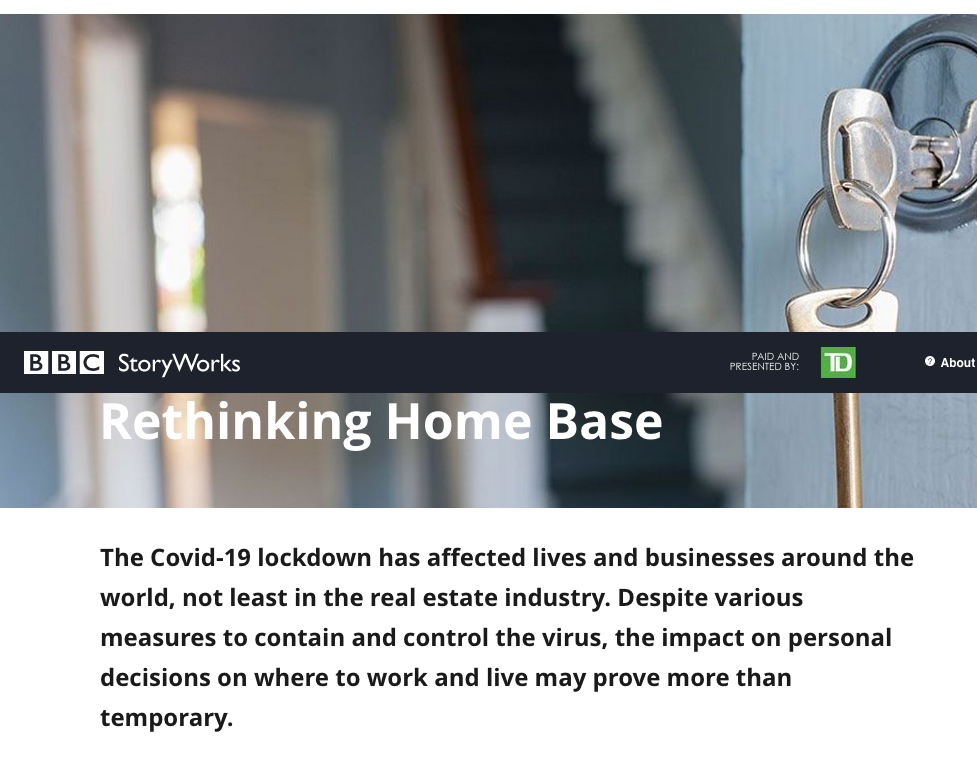 The BBC Storyworks site in Canada has launched a 6-part series written by me about Covid-19 and the impact on housing and the mortgage industry. The articles will appear weekly, starting this week. Later articles will look at mortgage options, the investing experience following Covid, optimum investment strategies going forward and close with retirement strategies in the age of Covid.
The BBC Storyworks site in Canada has launched a 6-part series written by me about Covid-19 and the impact on housing and the mortgage industry. The articles will appear weekly, starting this week. Later articles will look at mortgage options, the investing experience following Covid, optimum investment strategies going forward and close with retirement strategies in the age of Covid.
The first article went up on Thursday and covers how the Work-from-Home phenomenon has impacted where we all live and work. You can find the full piece by clicking on the highlighted headline here: Rethinking Home Base. The series is sponsored by TD Bank.
Working from home is now mainstream, whether temporarily for those still employed, or as a more enduring shift to home-based self-employment. Many technology companies now let employees work from home: some until 2021, some permanently.
“Covid-19 shaped the real estate market during the second quarter in every possible way,” says Phil Soper, president and CEO of Royal Lepage. Its latest housing survey showed home prices rising sharply, with supply struggling to keep up with a surge in demand: “As the reality of extended and potentially permanent work-from-home employment sunk in, people pondered both the location and size of their homes,” he said in a release on the survey, “Simply put, larger homes in smaller communities have become more fashionable.”
Many urban homeowners are selling their expensive city homes and swapping them for bigger places in the suburbs or cottage country. Not surprisingly, and as Reuters recently reported, there’s a severe glut of office space in New York City. Many REITs with heavy exposure to offices and malls have been hard hit.
Consumer spending patterns changing too
Covid has changed consumer spending patterns, with less eating out and reduced need for new clothes for the office. Meanwhile, cooped-up homeowners are landscaping back yards, and adding pools and decks. These home-based workers are upgrading computers and office equipment, upgrading smartphones, adding peripherals from Logitech or HP Inc., trekking to Home Depot to retrofit workspaces and ordering furniture online from RH or Wayfair. They stay in touch with customers through technologies like Zoom or Skype. They collaborate with remote co-workers through Slack or Microsoft Teams. They close deals with electronic signatures from firms like DocuSign, while medical professionals consult via telemedicine tools like Teladoc.
Cottage country booming
Cottage country is experiencing a massive sales boom. The story says veteran Collingwood realtor Karen Willison is swamped with business from urban refugees. Far from creating bargains, Covid has elevated home prices across the board, especially those with waterfront.
New retirees figure prominently: Pre-Covid some clients who thought they’d retire in two years are speeding up plans. We’ll look at this aspect more later in the series.


